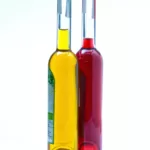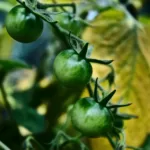Which Vegetables Do Not Like Manure?
Vegetables are an essential part of any healthy diet, but not all vegetables require the same care and feeding. For gardeners wondering which veggies don’t appreciate manure in their soil, this article is for you! As a horticultural expert with decades of experience under my belt, I’ll be exploring why some plants just don’t like being fertilized with animal waste.
The use of manure as fertilizer has been around since ancient times; it’s cheap and easy to obtain, so it makes sense that many farmers have relied on it over the years. However, while manure can be great for certain crops, there are also several vegetables that simply do not respond well when combined with manure. Read on to learn more about these picky eaters!
Let’s face it: gardening isn’t always fun or glamorous. But by understanding which vegetables don’t enjoy manure-enriched soil, you’ll save yourself time and frustration down the line. So let’s dive into the world of plant nutrition and find out exactly which veggies won’t take kindly to a bit of added poo in their potting mix!
What Is Manure?
Manure is a valuable and versatile soil amendment that helps to nourish plants with essential nutrients. It’s made up of animal waste, plant matter, bedding material, and sometimes even household kitchen scraps. Different types of manure have different ratios of nitrogen, phosphorus, potassium, and other important minerals depending on their composition.
The benefits of using manure are plentiful; it can help improve the physical structure of your soil by increasing its drainage capabilities while also helping to retain moisture. Manure also helps increase organic matter in the soil which creates an ideal environment for microorganisms to flourish and helps break down pollutants more efficiently. Plus, adding fresh manure to your garden beds each season keeps them well fed!
But not all vegetables like having too much manure around – some prefer alternative methods of fertilization such as composting or liquid fertilizer applications. In the next section we’ll take a look at different types of manure so you can determine what’s best for your gardening needs.
Types Of Manure
Manure is the nutrient-rich organic matter that can be used to fertilize and nourish plants. It comes in many forms, ranging from horse manure to chicken manure to cow manure to sheep manure – even fish manure! Each type of manure has its own unique benefits for soil conditioning and plant health.
Horse manure is an excellent source of nitrogen, phosphorus, potassium, calcium, magnesium, zinc, iron and sulfur. The high content of these essential minerals makes it an ideal choice for adding nutrients to any garden or landscape. Horse manure also contains beneficial bacteria which helps promote healthy soil structure.
Chicken manure is a great source of nitrogen and other trace elements like copper and zinc. However, it should not be overused as too much will burn plants due to its high salt content. Chicken litter can be applied directly onto the soil surface but it’s best if you mix it into your soil before planting so the salts are diluted by water uptake during irrigation or rainfall.
Cow manure provides ample amounts of nitrogen and phosphorus along with some micronutrients such as manganese and boron. Cow dung is less concentrated than other types of animal waste making it easier on sensitive crops while still providing needed nutrition for vigorous growth. Be sure not to use fresh cow poo though; make sure that it has been composted beforehand!
Sheep manure contains more nitrates than any other kind of livestock feces – up to 5% compared with 2-3% found in cow pats! Sheep droppings are made up mostly of undigested plant material so they provide little nutritional benefit unless mixed with other sources like hay or straw bedding materials prior to application on soils.
Lastly, fish manure offers an abundance of valuable macro-nutrients including nitrogen and phosphorous plus additional micronutrients such as zinc, copper, cobalt and selenium. Fish emulsion fertilizer gives off a strong odor but this doesn’t deter most gardeners who swear by its effectiveness when used correctly! With all this said however there are certain vegetables that don’t respond well at all when exposed to various types of fertilizers – especially those derived from animal waste products like manures mentioned above.
Nutrients In Manure
Manure is a powerful organic fertilizer and an essential component of successful vegetable gardening. It contains nitrogen, phosphorus, and potassium – the three primary nutrients needed for healthy vegetables – as well as many other trace elements beneficial to soil fertility. Manure also helps improve water retention in soil which is important when growing vegetables in dry climates or during times with little rainfall.
But not all vegetables benefit equally from manure. Some are particularly sensitive to its high levels of nitrogen, while others require different components found within it. For example, root crops like carrots and beets tend to suffer if too much nitrogen is present in the soil; they need balanced amounts of phosphorus and potassium instead. Similarly, legumes such cabbage and beans prefer composted manure rather than fresh manure because their leaves may burn due to excess ammonium nitrate content.
Organic fertilizers like bone meal or green manures can provide these specific nutrient needs without the risk of burning plants from excessive nitrogen exposure. If you’re unsure about what your particular vegetable requires for optimum growth and health, consult an experienced gardener or horticultural expert who will help guide you through selecting the best type of manure-based material for your garden’s needs. With proper research and care, you can ensure that your veggies get all the nutrition they need!
Vegetables That Benefit From Manure
The use of manure in gardening is something akin to a fairytale. It’s like a magical elixir, transforming ordinary soil and plants into something extraordinary. Organic manure, when used correctly, can be incredibly beneficial for growing vegetables. Manure fertilizer helps provide essential nutrients to the soil, while liquid manure can help keep plants hydrated during periods of drought. Well-rotted manure provides plenty of organic matter to aid with drainage and moisture retention. And vegetable compost made from animal waste or kitchen scraps adds an extra layer of nourishment that encourages vigorous growth and robust harvests.
These are just some of the many benefits available through using manure as part of your garden maintenance routine. All these elements come together to create an environment where healthy vegetables take root and thrive—exactly what every gardener wants! But this isn’t always the case; there are certain vegetables which may not benefit from the addition of manure to their surroundings…
Vegetables That Do Not Benefit From Manure
Not all vegetables benefit from manure as a fertilizer. In fact, there are some that actively dislike it and can even suffer when exposed to too much of it. To help gardeners get the most out of their vegetable patches, here is a list of no-manure-vegetables, manure-free-vegetables, manure-averse-vegetables, manure-intolerant-vegetables, and manure-resistant-vegetables:
- Tomatoes – Tomatoes should not be fertilized with any type of animal waste; instead use compost or commercial fertilizer for best results.
- Peppers – Peppers do not respond well to manures so avoid using them in your soil mix.
- Potatoes – Potato plants don’t need extra nitrogen because they already contain plenty in the form of starch. Too much nitrogen will lead to increased foliage growth at the expense of tuber production.
- Onions – Onions prefer low levels of nitrogen which means you should skip adding any kind of manure fertilizer to your onion beds if possible.
It’s important to keep in mind that different varieties within each species may have varying responses to manure based on their genetics and growing conditions. Always research specific varieties before fertilizing with anything other than organic matter such as compost or mulch. As an alternative to applying straight up animal waste, consider alternatives like aged poultry litter or vermicompost (worm castings) for added nutrients without risking overdoing it on the nitrogen content. So rather than assuming every vegetable needs some kind of animal derived fertilizer, take time to evaluate what would work best for each one before planting season begins! With this knowledge in hand we can move onto exploring alternatives to manure for fertilizing vegetables.
Alternatives To Manure For Fertilizing Vegetables
For many gardeners and farmers, manure is the first thing that comes to mind when it comes to fertilizing vegetables. But not all vegetables like manure; in fact, some are downright picky about this type of fertilizer! Fortunately, there are other options available for those looking for alternatives to manure.
Compost can be a great alternative since it’s composed of decomposed organic matter from plants, animals and even microbes. The nutrients in compost provide essential food for your vegetable garden without the potential problems caused by manure such as disease or nutrient imbalance. Plus, you don’t have to worry about any unpleasant odors either!
Fish fertilizer is another option that has become increasingly popular with vegetable growers due to its high nitrogen content. Fish fertilizers come in both liquid and dry form so they can easily be incorporated into your soil amendment regimen. Bone meal, seaweed extract and rock dust are also excellent sources of natural plant nutrition that help keep your veggies healthy and strong without having to use much (or any) synthetic chemicals.
So if you’re looking for an effective way to feed your veggies while avoiding potentially smelly side effects, try one of these alternatives instead! They’ll ensure your plants get the nutrients they need without any added hassle.
How To Apply Manure Properly
Applying manure to your garden is an essential step for a successful harvest. But, some vegetables don’t take kindly to it. For instance, cucumbers and melons don’t respond well when you add too much nitrogen in the form of manure or fertilizer.
To get the most out of your application, here’s how to apply manure properly:
| Rule | Explanation |
|---|---|
| Manure Amounts | Use only as much as recommended by soil tests; over-application will damage crops. |
| Manure Timing | Apply at least 8 weeks before planting so nutrients can be absorbed into the soil. |
| Manure Techniques | Incorporate manure deeply into the soil with tilling (at least 6 inches) or turning it under with a spade. |
These guidelines should help simplify applying manure correctly and safely. With proper planning and care, your garden will thrive! Plus, you won’t have to worry about ruining any delicate veggies like cucumbers or melons. So go ahead – get gardening and enjoy the fruits of your labor!
Conclusion
In conclusion, manure is a valuable fertilizer for many types of vegetables. However, there are some vegetables that do not benefit from the use of manure and may even be harmed by it. Knowing which vegetables to avoid using manure on can help ensure healthy crops every season.
For example, lettuce and other leafy greens should never have fresh manure applied directly to them or used as mulch near them due to their sensitivity to nitrogen levels in soil. Instead, these plants would fare better with aged compost or rotted straw.
It’s important to remember that when applying any type of fertilizer, including manure, proper application is key. Applying too much will lead to an excess of nutrients in your soil while applying too little won’t give your plants what they need. Following instructions carefully can help make sure you get the most out of your fertilizers and keep your plants happy and healthy!




